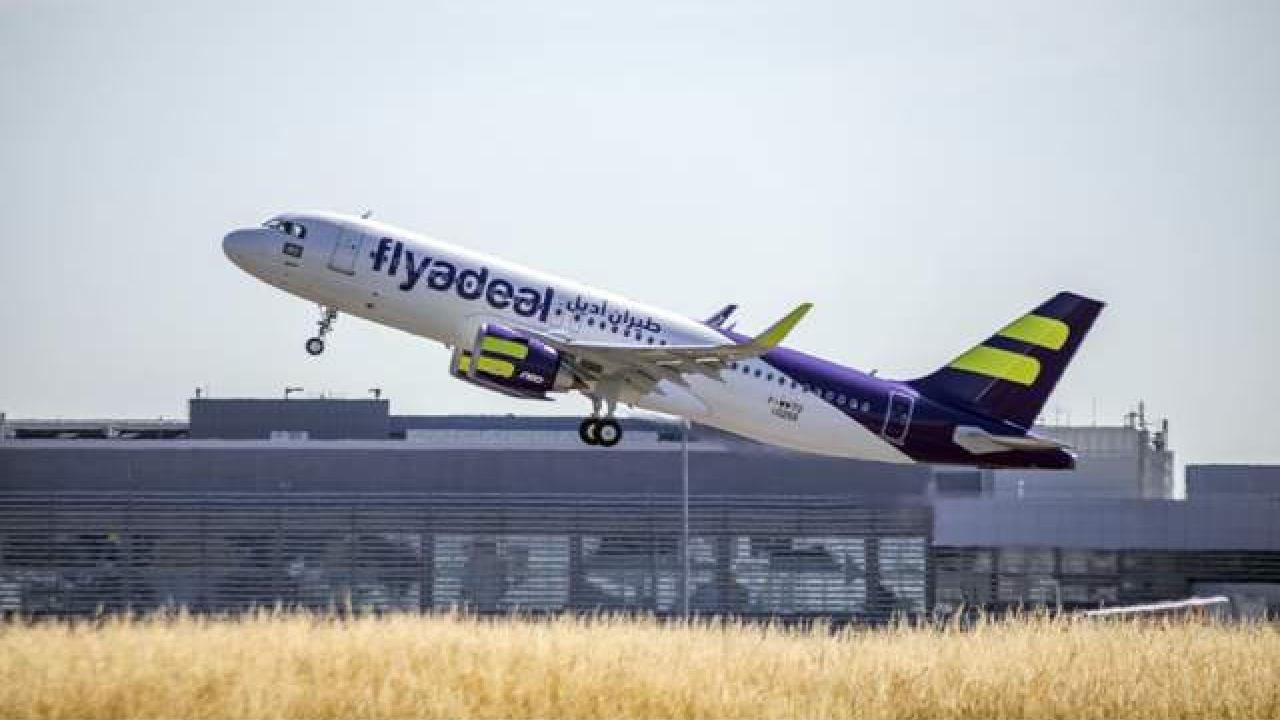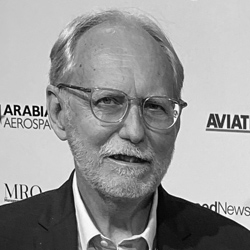It's a small world for Greenway...
Saudi Arabian low-cost carrier Flyadeal welcomed its new chief executive, Steven Greenway, at the start of the year, and he’s back in his element.

Steven Greenway is a self-confessed workaholic with a particular passion for the “dynamic challenges” that start-ups present. If you want something built quickly from nothing, he’s your man.
His own global footprint over the last 25 years rivals those of some of the airlines he’s advised – 12 bases across four continents and numerous other ports of call where assignments have taken him.
Now he’s back in the Middle East, at the helm of Flyadeal, the Kingdom’s only home-grown low-cost carrier (LCC). Typically it seems, he couldn’t wait for his paperwork to be finalised before he was behind his desk. He started officially on January 1.
It’s no surprise that he’s not a “big corporate guy”. For him, small is beautiful: more intimate, more fun. “You can make a decision and see the impact of it straight away. That’s the key thing for me.”
He found that in the LCC environment – “very tight, very small unit” – where he’s built his career. Not that he planned it that way: “Things came along,” he said.
What came along has taken him literally around the world from his native Australia in roles with companies and airlines too numerous to list. Of his many achievements, one he’s particularly proud of was his part in turning the business plan for Scoot, SIA’s LCC subsidiary, into a functioning airline in just nine months. That was 2012, and “they’re still using in-flight music that I selected,” he said.
No stranger to the Middle East, he’d found Kuwait interesting in his year there with Jazeera Airways; Dubai and Emirates were exciting; and Saudi Arabia was intriguing before fate kept him in Asia for several years.
“I was in Asia when it was booming,” he said. “The Middle East today is almost a replica of Asia 10 years ago. The industry is thriving. I’ve seen this before.”
It helps that the authorities have “grasped how important the aviation industry is” to development and growth. “They get it. They recognise that if you’re going to have a modern transportation infrastructure, you need commercial aviation.”
Compare that with Europe, he added, where aviation is a bad word and “you’re responsible for the ills of everything”.
Greenway is excited about what’s happening in Saudi Arabia and compares it with the opening of China from earlier decades. “It’s a large country that all of a sudden opened up to the world. Visitors are starting to discover the country and Saudis are discovering their own country.”
The airline currently serves 18 domestic and 11 international year-round and seasonal destinations in the Middle East and Europe from bases in Jeddah, Riyadh and Dammam. It plans to grow its fleet to 100 aircraft by 2030, tripling in size in just over four years, a “fast evolution” in response to the rapid growth in the market in response to Saudi Arabia’s Vision 2030.
“We’re seeing customer segments that didn’t exist before,” said Greenway. Groups of women travelling independently is one; another is the influx of foreigners drawn by attractions such as the Red Sea resorts and “places even locals didn’t know existed”.
“We’re riding the back of that wave.”
Several years ago, Greenway was semi-retired and rather enjoying it. He had decided to try “something different”, and joined the boards of several companies active in areas including travel tech, heavy industry, training and security. “I met a lot of interesting people who I wouldn’t have met otherwise,” he said.

From 2021-2023, he was with the technology company Pangiam, a pioneer of biometric verification whose scanners are found in most US airports. Said Greenway: “I ran it as president for a couple of years in [Washington] DC until it was sold.”
Back in London, he was wondering what to do besides indulge his passion for cooking. “My friends said ‘Why not go back to what you love?’, so it was fortuitous when I was approached to run Flyadeal.”
It wasn’t a difficult decision. “I’d worked in the Middle East before, I like the people in the industry, it’s booming and there are some interesting things going on.” Greenway did what anyone in his situation would and phoned a friend or two. “All of them said ‘Go! You won’t regret it.’ One step led to another, and here I am.”
He had the advantage of having already worked in the Kingdom in 2015, when he opened the Saudi Arabian office of Scoot. But that didn’t prepare him for what he’s found on his return.
“I was amazed at how things have changed,” he said. “Riyadh is the real driver – it’s booming. Everything has come alive. It’s incredibly different to what I remember.”
The pace of change is staggering. When he spoke to Arabian Aerospace, he had just received specifications for the new Red Sea Airport planned to open in 2025. “We’re presented with all these choices,” he said. “Brand new markets, airports being built to stimulate regional growth: there’s no historical data to help you figure out what you’re going to do.”
He’s confident Flyadeal will be up to the challenge. He inherited “a well-run company… a great airline with the DNA of an LCC.” His job over the next year will be “getting ourselves fighting fit for the next steps.”
A fleet of 33 aircraft carrying 10 million passengers a year is not a small operation, he said, but it is “critical” to have the right people to enable the kind of exponential growth envisaged. Its current talent pool of about 1,200 people will swell to 2,000 by the end of the year; the airline has invested heavily in its own MRO line and base capabilities.
Greenway finds himself in an envious position: “I do things because I want to. I love this region, the airline and the challenge. I don’t need much more to keep me happy.”
Stay up to date
Subscribe to the free Times Aerospace newsletter and receive the latest content every week. We'll never share your email address.


